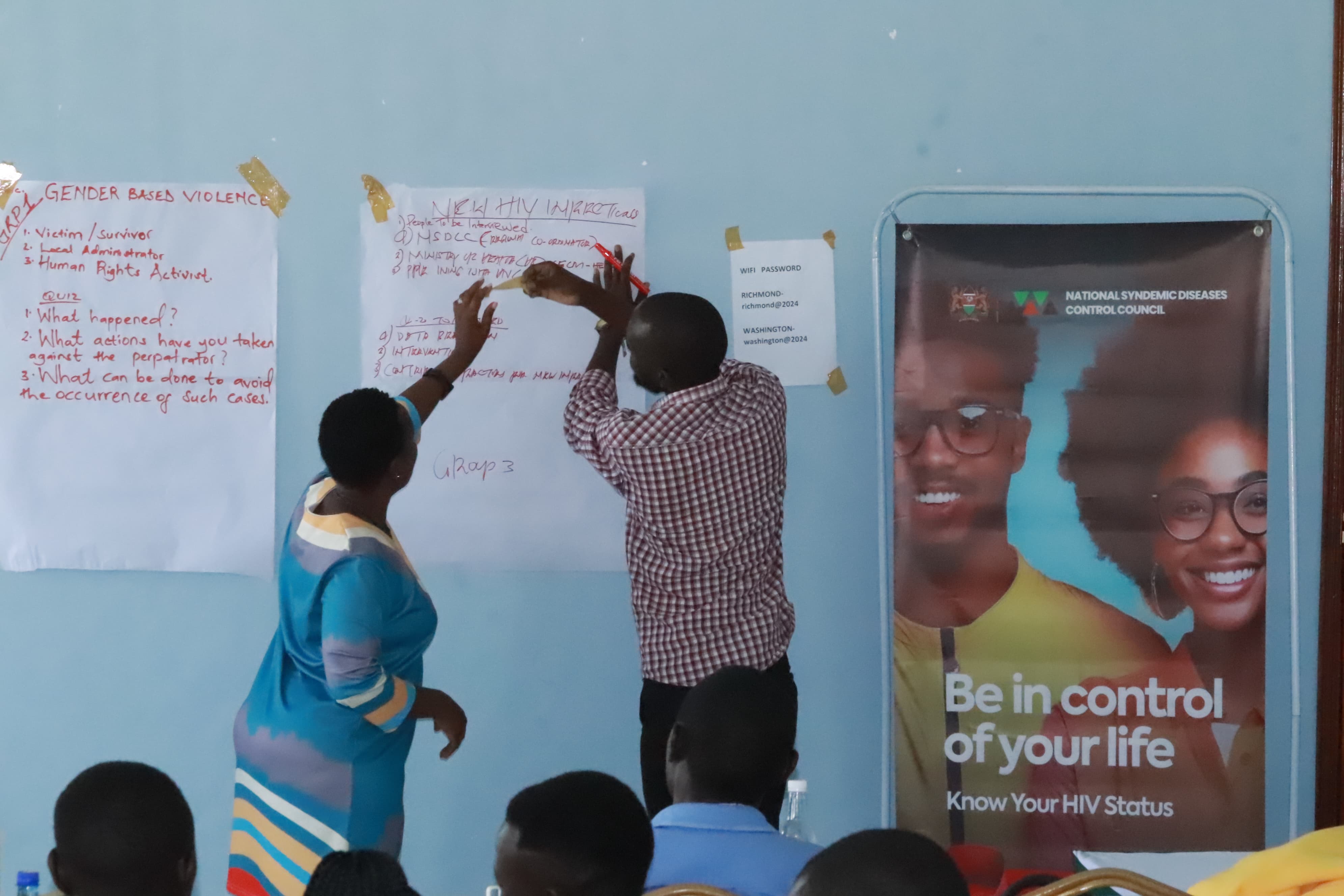
The Media Council of Kenya (MCK) in collaboration with the National Syndemic Diseases Control Council (NSDCC), convened a media sensitisation forum aimed at strengthening journalists’ capacity to report HIV and other syndemic diseases with accuracy, balance and sensitivity.
MCK Assistant Director for Training and Curriculum Development Christine Nguku highlighted the media's influence in shaping public perceptions and driving social change. She called on journalists to tell stories that reflect both the challenges and the progress in the fight against HIV.
“We need to shift our focus to prevention stories. It’s not just about managing the disease but stopping it from spreading in the first place. It’s equally important to share success stories where behavior has changed, infection rates have declined, and communities have taken charge of their health. That’s how we celebrate progress,” said Nguku at a journalist’s meeting in Homabay County.
Nguku reminded journalists of the power of shared experiences in combating stigma and misinformation, urging them to think critically and creatively in their storytelling.
MCK Manager for Press Freedom, Safety and Advocacy Leo Mutisya highlighted the importance of mental health in the journalism profession. He advised journalists to be mindful of their emotional well-being, particularly when covering distressing or high-pressure events.
“Mental preparation is essential, especially when covering challenging situations like demonstrations. Plan your day carefully, know what you’re walking into, and prepare yourself mentally before proceeding,” he noted.
Speaking at the event, NSDCC’s Nyanza Regional Manager Steve Oyugi opined that the media is a vital ally in public health communications.
“Media is not just a messenger; it is a practical partner and a critical vehicle for reaching our target audiences. Through collaboration and a multi-sectoral approach, we can craft and deliver impactful messages that drive behavioral change,” he stated.
He further noted the need for continuous feedback to evaluate the impact of health communication efforts.
“Feedback is how we measure progress and refine our strategies to meet our objectives more effectively,” he added.
The sensitization forum served as a timely reminder of the critical role of ethical, context-rich health reporting in promoting public awareness and supporting national health outcomes. By equipping media professionals with the right knowledge and guidance, the Media Council of Kenya and NSDCC reaffirmed their commitment to combating misinformation, reducing stigma and fostering informed, healthier communities.